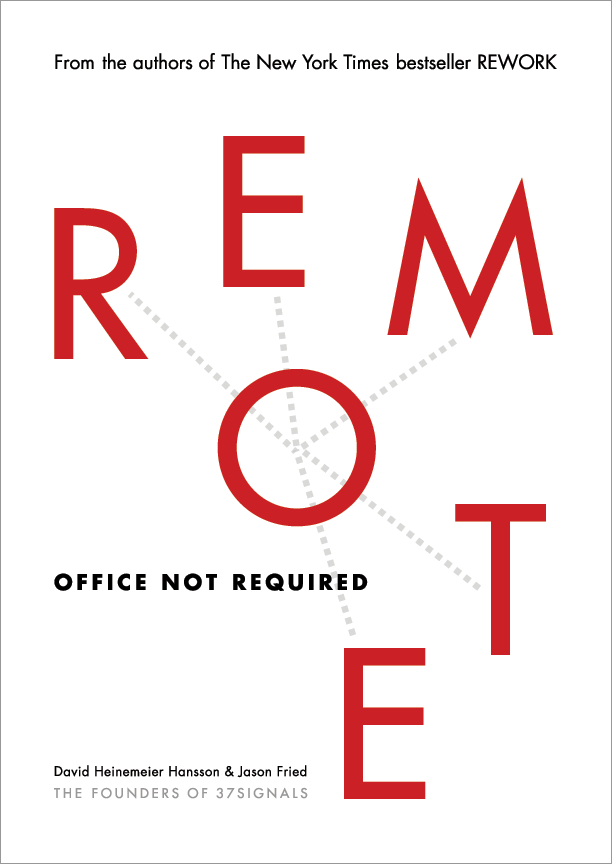
Emailing someone 3 desks away
Jason and David enumerate the arguments/benefits of letting the team work remotely, and tackle the common concerns managers have. I found their insights about why we even come to the office, and how it affect both productivity and creativity most enjoyable. If we discount the fact that going to the office is a default, what others purposes does it serve? (And could less or no office time serve those same purposes better?)
Worth counting too is the number of days you spend at the office emailing someone who sits only three desks away. Please go to the office all the time and act as though they’re working remotely: emailing, instant messaging, secluding themselves to get work done. At the end of the day, was it really worth coming to the office for it?
The authors also address an addiction that I struggle with — the need or possibility of immediacy. If we have access all the time, and if others expect that we can respond at any time, what happens to their expectations of us? And how do we change those expectations?
I need an answer now! When everyone is sitting in the same office, it’s easy to fall into the habit of bothering anyone for anything at any time, with no regard for personal productivity.
First, it takes recognising that not every question needs an answer immediately — there’s nothing more arrogant that taking up someone else’s time with a question you don’t need an answer to right now. That means realising that not everything is equally important.
Remote: Office Not Required by Jason Fried and David Hansson